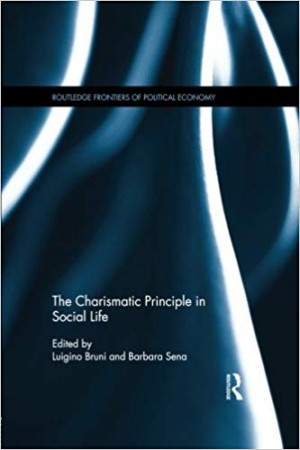 Luigino Bruni, Barbara Sena (edd)
Luigino Bruni, Barbara Sena (edd)
Routledge, London, November 2012
Series: Routledge Frontiers of Political Economy
ISBN: 978-0-415-63822-7
See on Routledge
Max Weber laid the foundations for the meaning of ‘charisma’ in modern secular usage. This new volume argues for the importance of the ‘charismatic principle’ in history, economics and society.
This volume brings together a number of contributors at the cross section between economics, theology, sociology and politics in order to set a research agenda for the following issues:
- What does it means to have a ‘charism’? How does it work in society? How might one distinguish a ‘charism’ from a talent? Are ‘charism’s given only to "special" people, or are they also present in ordinary people? Is a ‘charism’ necessarily associated with religion, or, is it, as we submit, possible to imagine ‘charisms’ at work within a secular perspective?
- Which are the principle perspectives of the role of ‘charisms’ in social history? How have the ‘charisms’ of noted personalities (e.g., Benedict, Francis, Gandhi) changed economic and social history?
- What insights might be drawn from ‘civil charisms’ such as the cooperative movement, non-profit organizations, social economy, and values-based organizations?
This book seeks to answer these questions through the employment of an interdisciplinary perspective, which examines the theme of the charismatic principle in social life in different fields of application.
Recommend to Librarian